Log in or create new account to save this product to your wishlist.
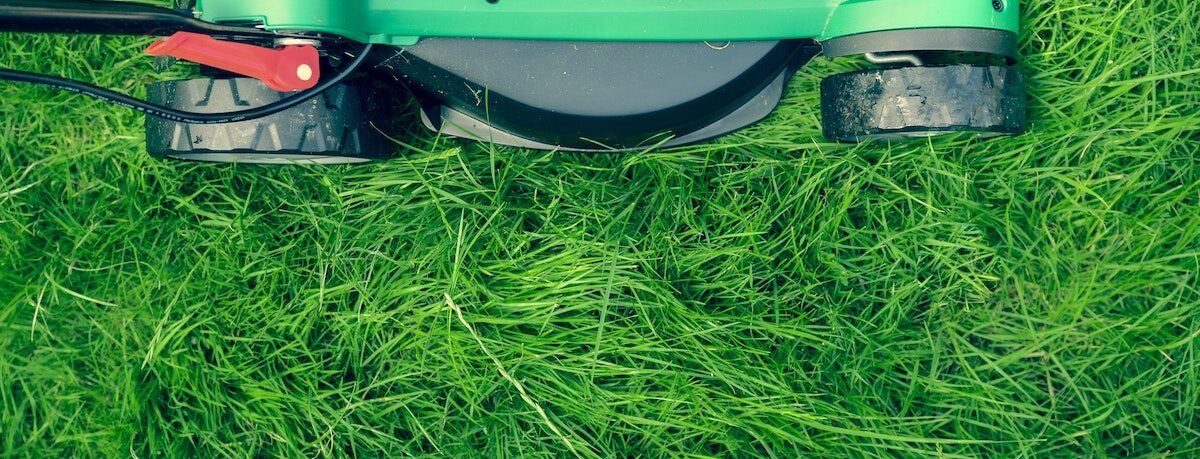
Lawn Care Tasks for May
All of the lawn care tasks to complete in May for a beautiful lawn all year round.
🌱 All important maintenance moments for your lawn during the year. Leave your email and we will send you the lawn calendar for free.
Enter your email
Receive the lawn calendar in the mail
Enjoy a green lawn all year round!

- Order by 2PM = shipped today
- 250.000+ satisfied customers!
- 60 day satisfaction guarantee
It’s almost impossible to predict how the British weather pans out. And April was no exception, going from bitingly frosty temperatures at the beginning of the month to a beautifully balmy Easter weekend. So, it’s been a tricky time for lawn care, particularly for sowing grass seed.
Nonetheless, there are plenty of lawn care tasks to complete in May, which will help get your soil in tip-top condition for a healthy growing season come summer.
Check out our May lawn care task list, helping you get the most out of your lawn this year.
What are the primary lawn care tasks in May?

You might have already enjoyed some time out in the garden: removing moss, killing weeds, dethatching your lawn, and aerating your soil. But if that little list is sending you down a rabbit warren of guilt, never fear. There’s still time to get started.
May is the perfect time for aerating or scarifying. This is because the soil temperature is high enough to germinate seed (it needs to be at least 10ºC to trigger germination). And now the leaves are on the trees, your overhanging branches offer a little extra shade.
May can be drier than April, but you can never quite count on it, can you? Keep a close eye on the rain, and top up wherever necessary. But never overwater. More about that later.
Regularly mowing your lawn with sharp blades helps encourage strong growth throughout the rest of the year. So, if you haven’t cut yet, it’s time to dust off your trusty lawnmower.
Your May lawn care to-do list:
- Fertilise – if you haven’t given your lawn its first feed of the year, don’t leave it any longer!
- Control weeds and moss – pull up weeds from the roots as they appear and overseed the patch to prevent the weeds’ return.
- Mowing your lawn – cutting your grass promotes healthy growth.
- Aerate the soil – your soil needs light and oxygen, so aerating helps develop strong roots.
- Water your lawn soil – but never too much!
- Repair damaged turf and re-seed (or overseed) – now your grass is growing, you’ll notice areas of winter damage. Get overseeding to prevent weeds and moss.
Lawn Care in May: lawn mowing in wet weather

The mowing season is well and truly in full swing. Mowing (with sharp cutting blades) should be a regular job to promote the healthy growth of your turf throughout the year.
However, it can be challenging to find the ideal mowing window if you’ve had lots of rain, so grab your opportunity to mow whenever you can. I cut my lawn every 3-to-4 days during May.
But:
What happens if your grass is brushing your kneecaps or you want to neaten your lawn in preparation for a family visit? After all, we all know that we should avoid mowing if the grass is wet.
Sometimes, you just have to bite the bullet and mow. But follow these top tips to minimise damage to your grass plants during wet weather:
- Drag your garden hose over the grass in the morning to remove dew and raindrops. Let the grass blades dry out throughout the morning.
- Mow in the afternoon. This way, your grass will have had a chance to dry out a little.
- Don’t mow too short – this can damage your grass plants. Only ever cut a maximum of ⅓ of the grass blade’s length. Set your cutting blades to their highest setting if your grass is long.
- Wait for around two weeks after fertilising your grass.
- Clean your mower well after cutting. Wet grass sticks to the underside of your mower and can affect its performance later on in the year.
Lawn care in May: lawn mowing in dry weather
If it’s been dry, you might be tempted to cut your grass really short, especially if it’s the season’s first cutting. We’re often keen to transform the look of our winter lawn; but practice caution.
Grass plants are 85% water – cutting more than ⅓ of the leaf results in dehydration. In dry weather, it’s super-important to ensure you don’t damage your lawn by cutting too short too quickly.
If you want a short, clipped appearance, do it gradually. Be conservative with your first cutting, and gradually reduce the height of the cutting blade over the next few mows.
Leave your grass a little longer in dry weather
Slightly longer grass creates a barrier from the sun’s drying power and wind. In periods of drought, it’s wise to use a higher cutter setting to help keep your soil moist for longer.
Longer grass also helps keep the soil cooler and watered because it captures more dew in the mornings.
If you’re only mowing the tips of your grass, you can trim without the grass collector. This adds mulch, which helps return nourishment to your grass plants. Fine clippings usually disappear after 24 hours.
Lawn Care in May: Keep your mower blades sharp!
Keep your lawnmower blades sharp to prevent damage to your grass plants.
Blunt cutting blades will tear your grass, leaving a larger wound on the tip of the cut leaf. This can lead to infection or dehydration (or both!).
Lawn Care in May: It’s time to fertilise!
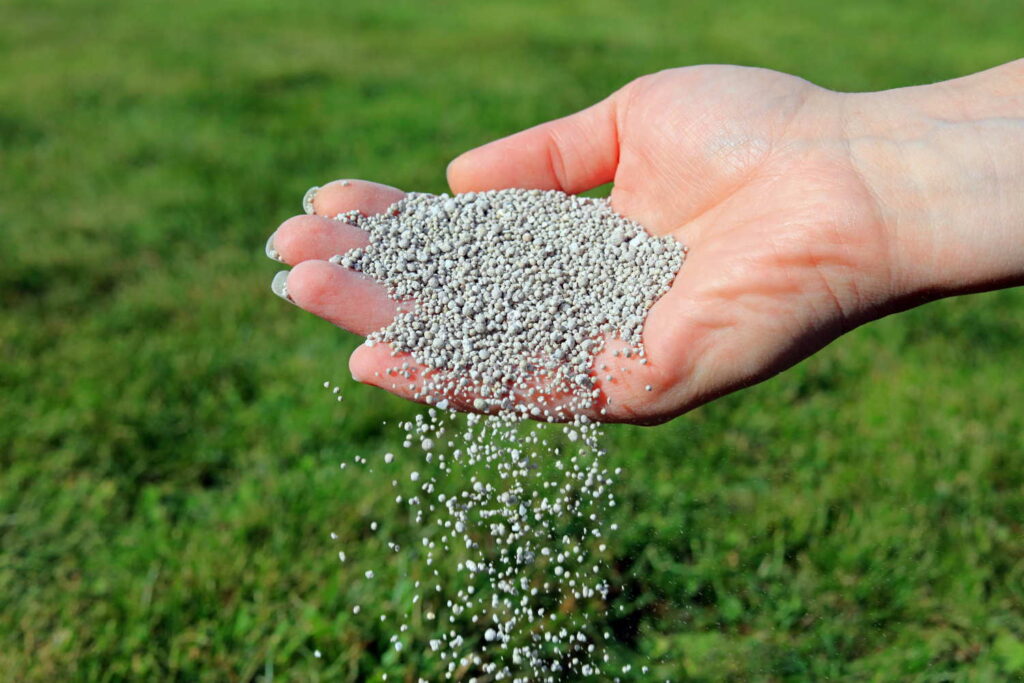
If you didn’t fertilise your lawn in April, make sure you feed your lawn with a high-quality fertiliser this month.
However, bear in mind the weather. While it’s unlikely the mercury will hit temperatures over 25ºC in May, stranger things have happened; let’s face it! We recommend MOOWY’s Spring Boost fertiliser for use at temperatures below 25ºC.
If we’re struck with a sudden heatwave, reduce mowing to once a week – that way, you’ll avoid stressing the lawn and allowing it to dry out. If the temperature is high, it’s better to use MOOWY’s Easy Mow fertiliser, which has a slower action, minimising the danger of scorching your grass plants.
Easy Mow fertiliser is perfect for breathing new life into your lawn and keeping it in tip-top shape in warmer weather.
Lawn Care in May: Control those weeds!
Spring is prime time for weeds to take hold of your garden soil, so it’s better to tackle them now than leave them to grow into the summer.
I’m not a fan of chemical weed killers because they’re often full of nasties that can damage the delicate nutrient balance of your soil. However, frequent mowing is one of the best ways to control most weeds, minimising the chance for them to thrive within your lawn.
If you want a faster fix, dig up the weed plants using a handheld weed puller, which grabs them by the roots. Of course, this is likely to leave a bald patch on your lawn – ensure that you overseed with premium grass seed to prevent the weeds from returning.
If you plan on using a chemical weed killer, make sure you read and follow the instructions carefully. Apply the chemicals when the weeds have developed leaves – not just after mowing when you’ll have shaved the leaves away. This is because weed killers are absorbed through the leaves.
Apply chemical weed killers topically. In other words: it’s bad for the environment and a waste of money to treat your entire lawn. Apply the chemicals just to the weeds, and you’ll have a safer environment for your lawn to continue to thrive.
Lawn care in May: Fight moss
If you look closely, you might notice a proliferation of moss growing between the soil surface and your grass blades. Moss can be easy to miss because it’s usually the same colour as your grass, so don’t be fooled by a cursory glance.
Moss tends to develop over the winter when the temperatures are low and the ground is wet. So, spring is the ideal time to kill off the moss that can suffocate your lawn and kill your grass plants.
There are a couple of ways to kill moss. Firstly, you could apply a moss killer – an iron sulphate-based chemical treatment that kills moss plants and strengthens your grass plants (win-win). Try MOOWY’s 2-in-1 Moss Killer and fertiliser, which kills moss within 14 days and feeds the soil simultaneously.
Alternatively (or additionally), you can scarify your lawn, which is the process of raking out the moss and thatch that develops on top of the soil surface over time.
Scarification is quite a stressful process for your grass plants: it can wreck the appearance of your lawn at first. But it’s an essential springtime task, and your grass will recover within two weeks: more robust and vibrant than ever. Always fertilise well after scarifying.
However, avoid scarifying if the weather is hot and dry. Your grass plants need plenty of moisture to recover, so it’s better to leave scarification until autumn if the weather is too balmy.
Check out our expert article on scarification for the lowdown on completing this essential lawn care task.
Lawn care in May: Watering your lawn
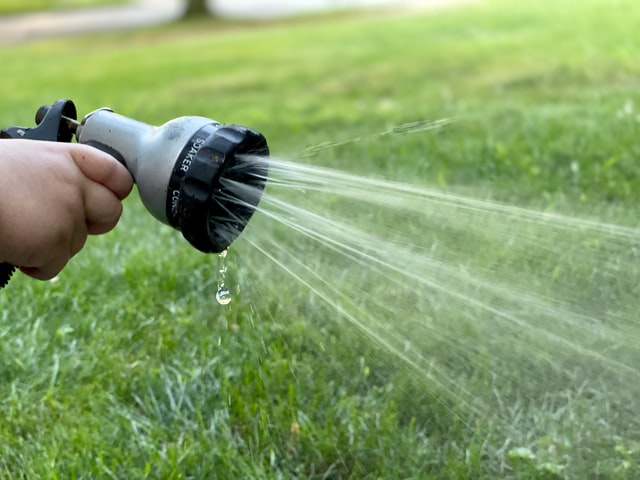
Your lawn needs water to thrive, but you should be careful to avoid overwatering. I generally recommend watering in May only when you’ve sown grass seed or laid new turf – especially if there’s plenty of rain forecast for the month.
A well-fed and regularly mowed lawn will develop deep roots. Overwatering will cause shallow roots – you want to encourage your grass plants to mine deep into the soil for moisture – that way, your plants become strong and resistant to drought.
Check out our expert guide to watering your lawn. And remember, only irrigate your lawn in May if the weather is hot and dry.
Lawn care in May: aerate your soil
A well-ventilated lawn stays green for longer during dry spells and absorbs water better when it rains. Aeration is definitely one of the more fun May tasks, completed in various ways that suit you.
Effectively, you aerate your soil by pricking the ground with a roller, garden fork, or aeration fork with hollow teeth. But if you’re aerating a small lawn, you might find aeration sandals to be the quickest (and most enjoyable) way to aerate your soil.
Check out our expert’s article on aerating your lawn for the full lowdown on how to complete this essential task.
Lawn care tasks for May: Repair your turf
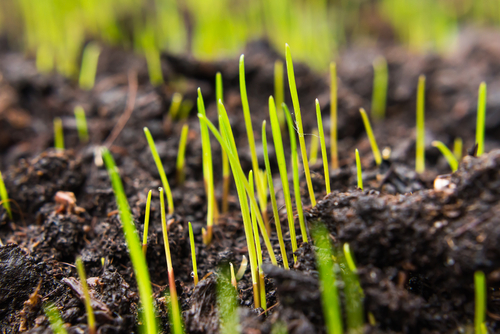
Your grass plants go dormant over the winter, and they wake up when the weather warms up in spring. And while grasses are generally robust plants, sometimes areas of your lawn don’t make it through the frosts of winter.
By now, your grass will have started growing in full force, so it becomes more obvious where there are patches of turf that didn’t make it.
However:
Never leave bald patches in your lawn – while grass plants will spread back over time, weeds are likely to monopolise on the empty space before the grass plants recover.
So, wherever you discover bald patches, ensure you overseed with high-quality grass seed, which should germinate within 14 days.
Overseeding keeps your lawn healthy because old plants become less vibrant and vital over time.
Check out our expert’s guide to overseeding your lawn.
Are you ready to get working? Or do you have questions?
I hope you’ve got the information you need for successful May lawn maintenance. But if you’ve got questions, don’t hesitate to get in touch with us.
We love to hear from you. Drop us an email – we’ll get back to you as promptly as possible.
Thanks for reading.
-
Zero-Waste Gardening – This is How You Do It!Did you know that the average person wastes between 100 and 150 kilos of food every year? That's why the concept of zero-waste gardening is becoming increasingly important for environmentally conscious gardeners that like to do their gardening greener.Read more
-
How to Master Tree Pollarding: A Practical GuidePretty dense! What might be an insult to some, is certainly a compliment to trees. Through pollarding, you can make sure, your trees have a dense crown of beautiful leaves.Read more
-
Get Ready: Here are 5 Garden Trends for 2025Curious about the latest garden trends for 2025? From smart solutions to sustainable choices, discover all the outdoor trends that are transforming British gardens!Read more
-
How to Care for Plants in Winter: A Simple GuideWhen winter comes around, the care requirements of your plants change. Find out, how to adjust the care routine for your plants.Read more
-
Companion Planting Made Easy: A Step-by-Step TutorialStrategic plant partnerships can solve common gardening problems like pest invasion and disappointing yields. Find out which plants are great together in our companion planting guide.Read more
-
How to Grow Sweet Potatoes in Your GardenWant to know something splendid? A single sweet potato plant can produce 5 to 10 pounds (4.54 kg) of nutritious tubers—plenty to keep your family’s pantry well-stocked for weeks!Read more
-
Revive Your Lawn After Winter With These Easy StepsTired of winter lawn damage? Discover how to repair brown spots, remove weeds, and revitalise your grass for a thriving garden this spring.Read more
-
A Complete Guide On Lighting for Your House PlantsAchieve perfect lighting for houseplants! This guide covers light mapping, plant placement, and grow light tips to help your plants flourish indoors.Read more
Leave a comment
Your answer will be displayed on the site and the interested party will be notified by email.
Leave a comment
Have a question or want to share your experience? Leave us a comment.
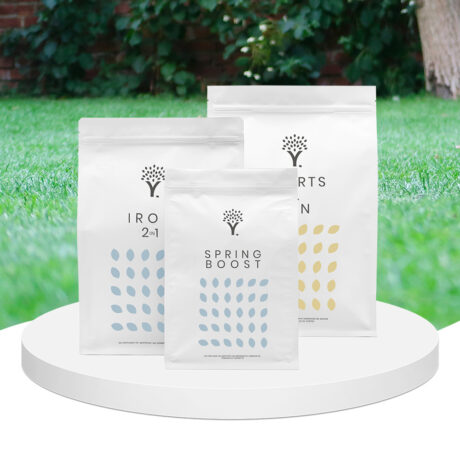
- Order by 2PM = shipped today
- 250.000+ satisfied customers!
- 60 day satisfaction guarantee
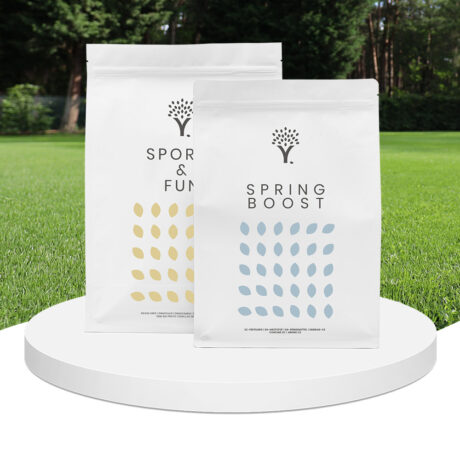
- Order by 2PM = shipped today
- 250.000+ satisfied customers!
- 60 day satisfaction guarantee

🌱 All important maintenance moments for your lawn during the year. Leave your email and we will send you the lawn calendar for free.
Enter your email
Receive the lawn calendar in the mail
Enjoy a green lawn all year round!





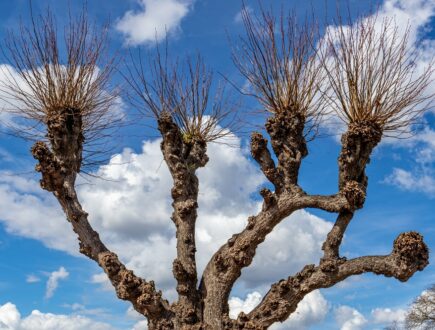

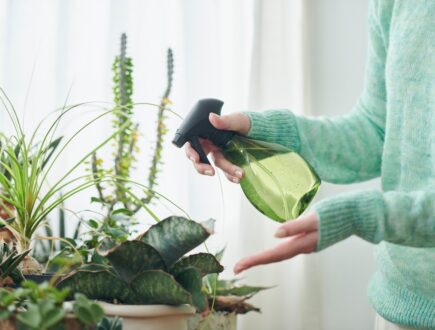


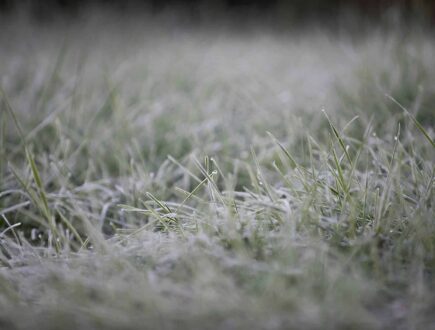

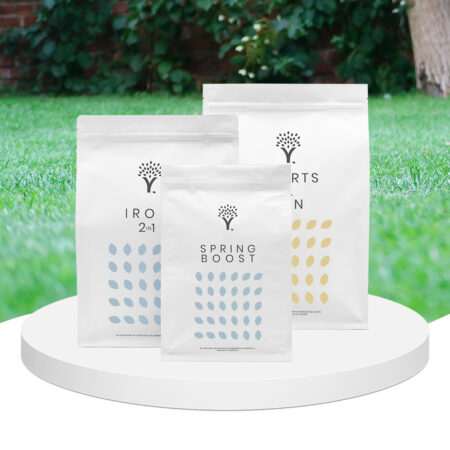
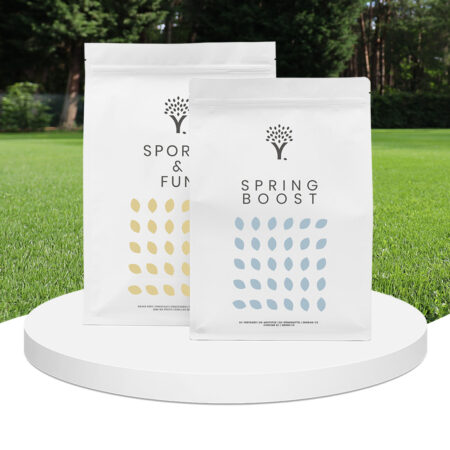
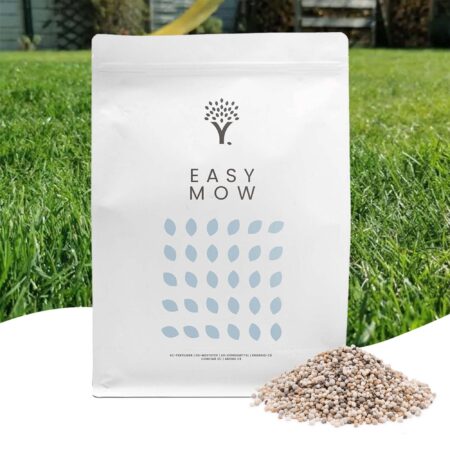
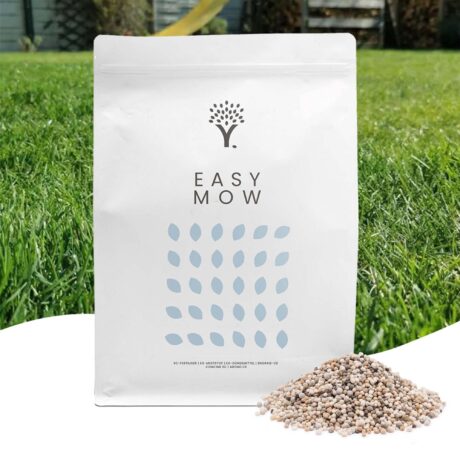

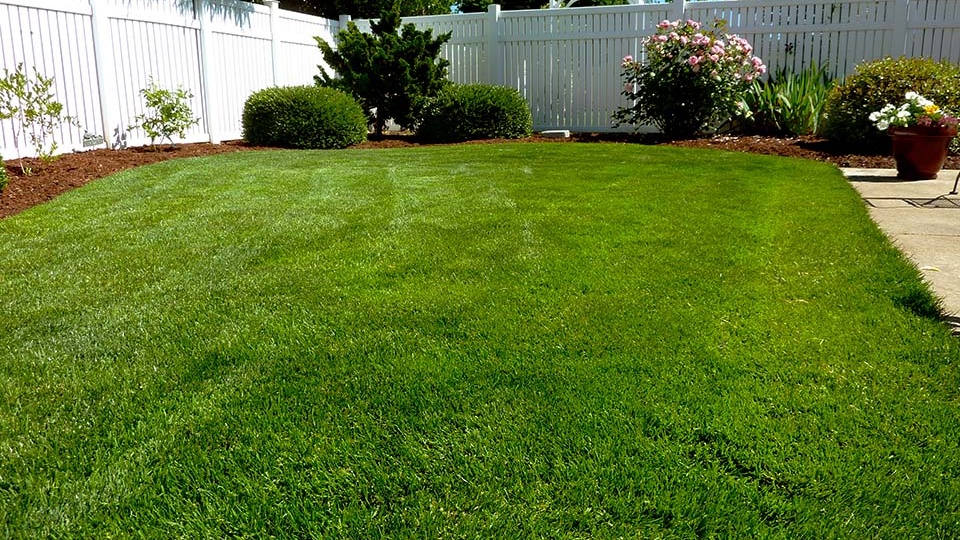
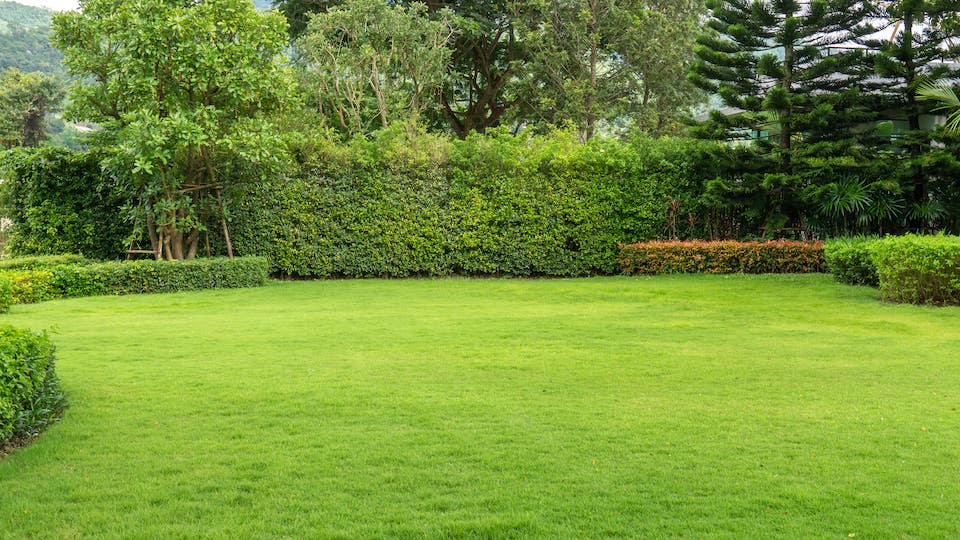
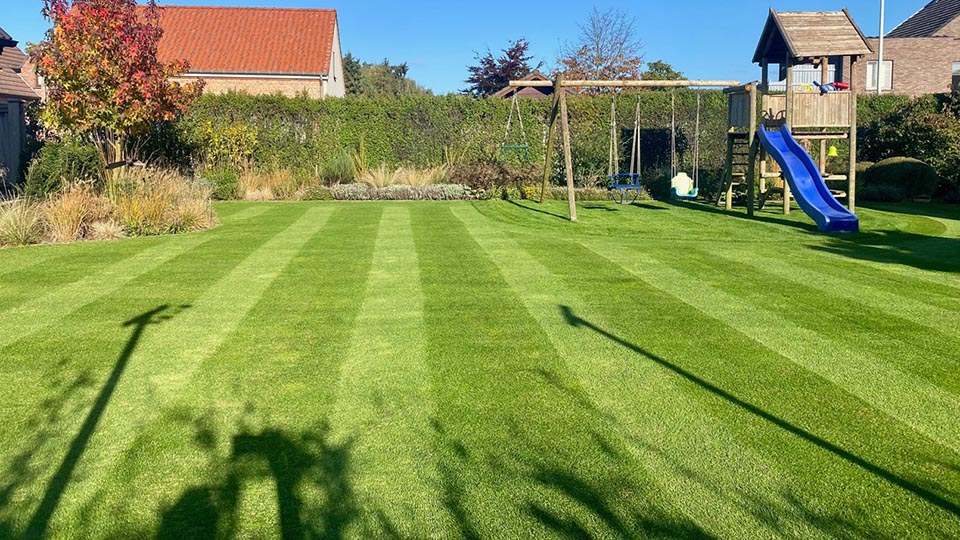

Comments (0)
There are no comments yet. Well then, what are you waiting for to
Be the first to write your comment!inaugurate this pretty page?
Do you have some comments?